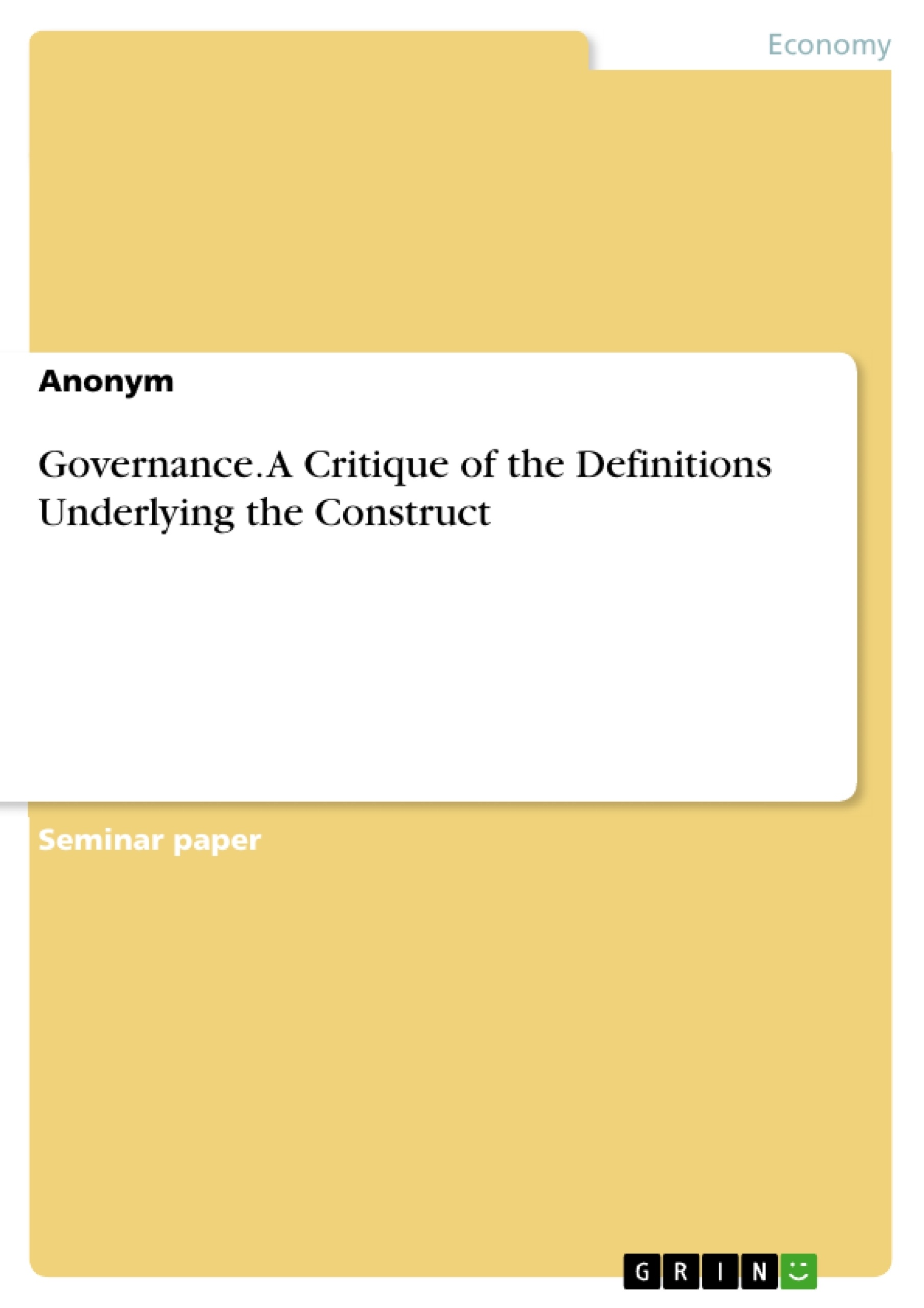The use of governance terminology has been used substantially throughout the 21st century, with buzz-phrases such as ‘good governance’ taking centre stage in the recent global development agenda. Whereas before, governance implied statesmanship, nowadays, the term encompasses the non-profit and private sectors, and is used as an alternative to ‘government action’.
In an attempt to better compare and contrast between different (and somewhat vague) explanations, there is a list, from which the most relevant keywords were extracted. It was also possible to create a ‘word cloud’ of associated terms; this tool is commonly used to visualise text data and is useful in exploratory search tasks.
Our impression of the literature and reports related to this term is that the authors tend to generalise and are inclined towards giving either a state-centric or a society-centric definition of ‘governance’. In trying to define the terminology, studies, and reports comply in that ‘governance’ is ‘a process’ or ‘method’ of ‘controlling’, ‘states’, ‘society’, ‘citizens’ and ‘organizations’. It was observed that political unions or institutions (such as the European Commission and EU agencies) tend to emphasise the political aspects of governance, whereas others (such as the World Bank) focus more on the societal and economic aspects, thus giving a more generic explanation. There seem to be instances where definitions of the term are ‘built’ or ‘tweaked’ purposefully and subsequently agreed upon, for example, during the opening stages of national and global fora. Supposedly, this is done to establish common ground among all the parties before discussions ensue.
We believe that the most relevant definition of this structure should encompass the way citizens choose to run society and imply that governance is broader than government. It should also reflect the management of a process. We feel that the explanation recently stated by the World Bank comes closest to our view – the process through which state and non-state actors interact to design and implement policies within a given set of formal and informal rules that shape and are shaped by power.
Inhaltsverzeichnis (Table of Contents)
- 'Governance': a critique of the definitions underlying the construct
- An evaluation of the construct's importance in the research context
- Limitations and weaknesses
- Personal reflections
Zielsetzung und Themenschwerpunkte (Objectives and Key Themes)
This report critically examines the term "governance" by analyzing its various definitions and exploring its significance within the research context. The study aims to uncover the strengths and weaknesses of the term and to shed light on its potential future applications.
- Analyzing and critiquing existing definitions of "governance"
- Assessing the importance of "governance" in research across different fields
- Identifying limitations and weaknesses associated with the term
- Exploring the evolving concept of "governance" in the digital age
- Evaluating the use of indices to measure corporate governance
Zusammenfassung der Kapitel (Chapter Summaries)
- 'Governance': a critique of the definitions underlying the construct: This chapter investigates the multifaceted nature of "governance," examining various definitions and identifying the prevalent state-centric and society-centric perspectives. The chapter highlights the common tendency to generalize and underscores the importance of encompassing both governmental and societal aspects of governance in a comprehensive definition.
- An evaluation of the construct's importance in the research context: The chapter explores the significance of "governance" across various research domains, highlighting its relevance in political, corporate, social, and environmental studies. It delves into the three core dimensions of the construct – authority, decision-making, and accountability – which provide a framework for understanding governance within diverse research contexts.
Schlüsselwörter (Keywords)
The key terms and concepts central to this report encompass "governance," "governance definitions," "research context," "authority," "decision-making," "accountability," "digital governance," "corporate governance," "governance indices," and "social contract."
- Quote paper
- Anonym (Author), 2018, Governance. A Critique of the Definitions Underlying the Construct, Munich, GRIN Verlag, https://www.grin.com/document/1446242



